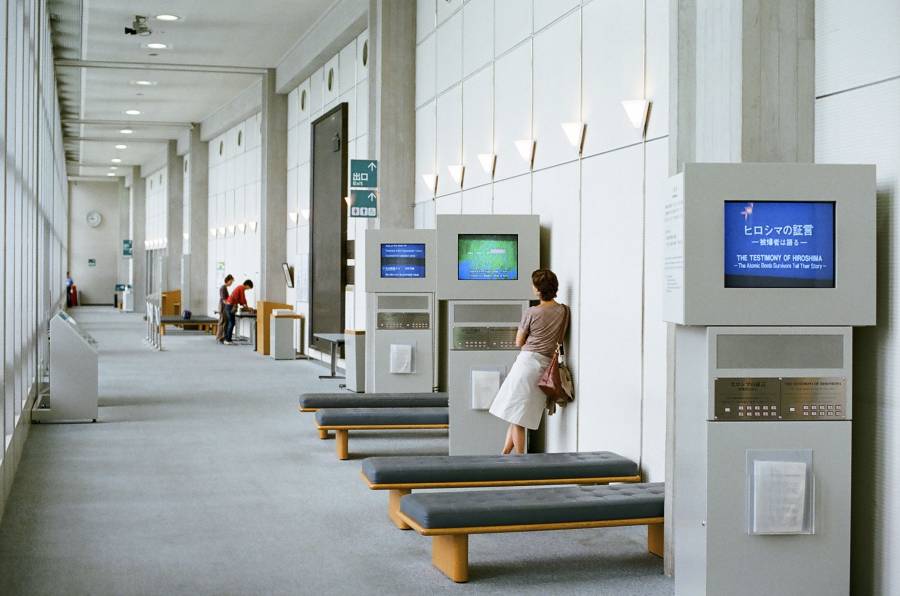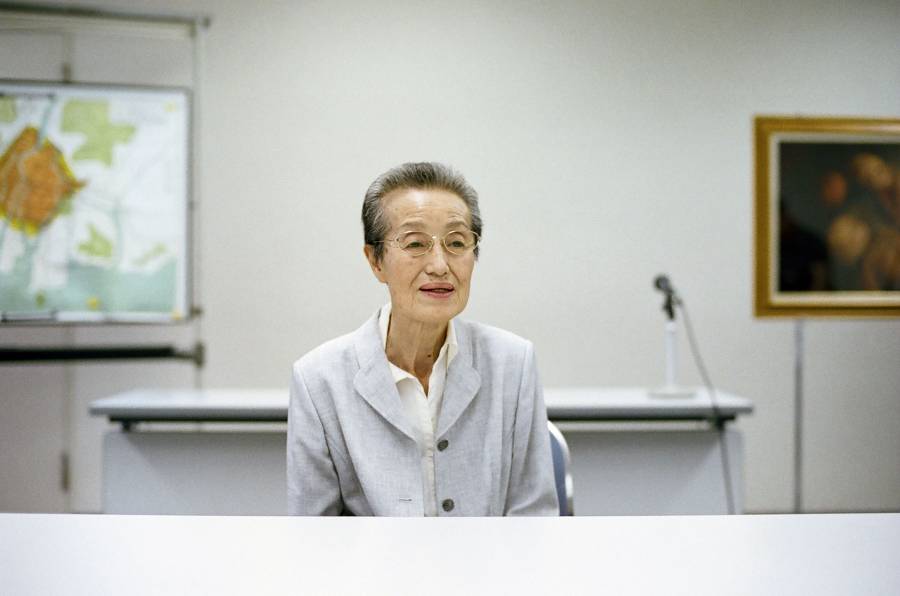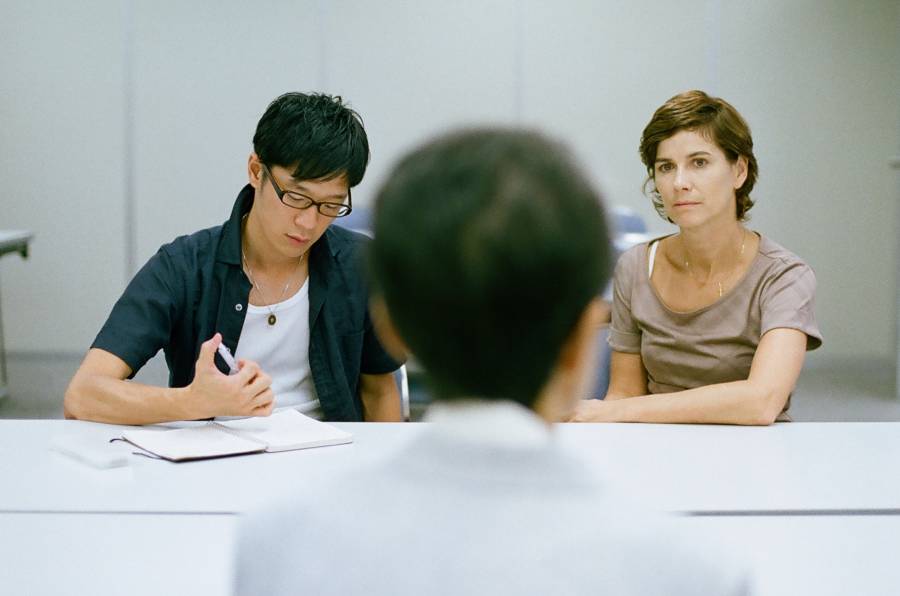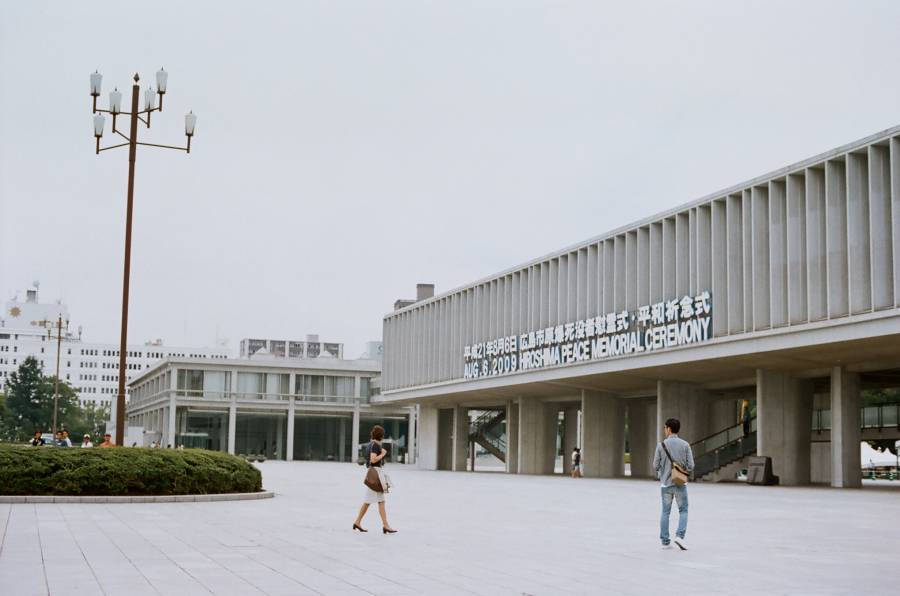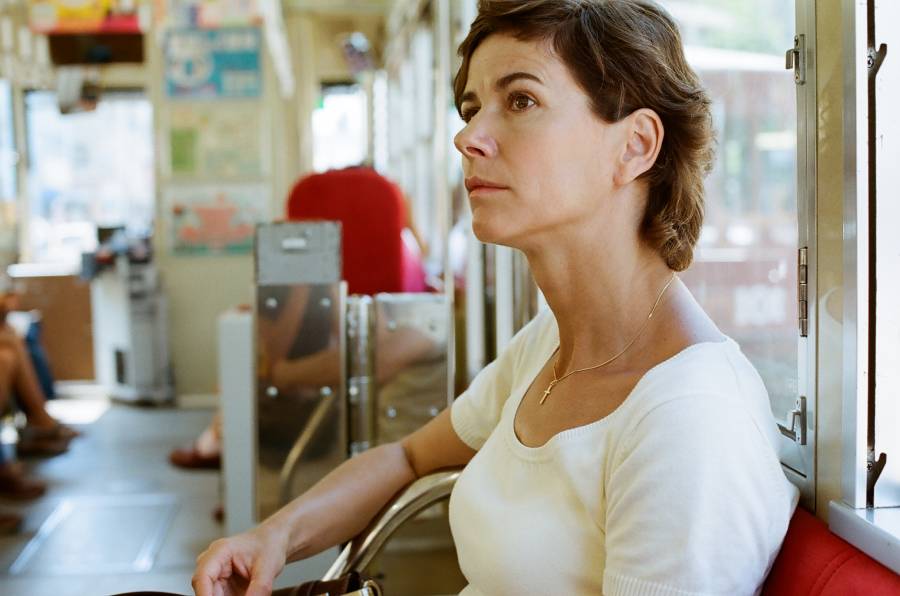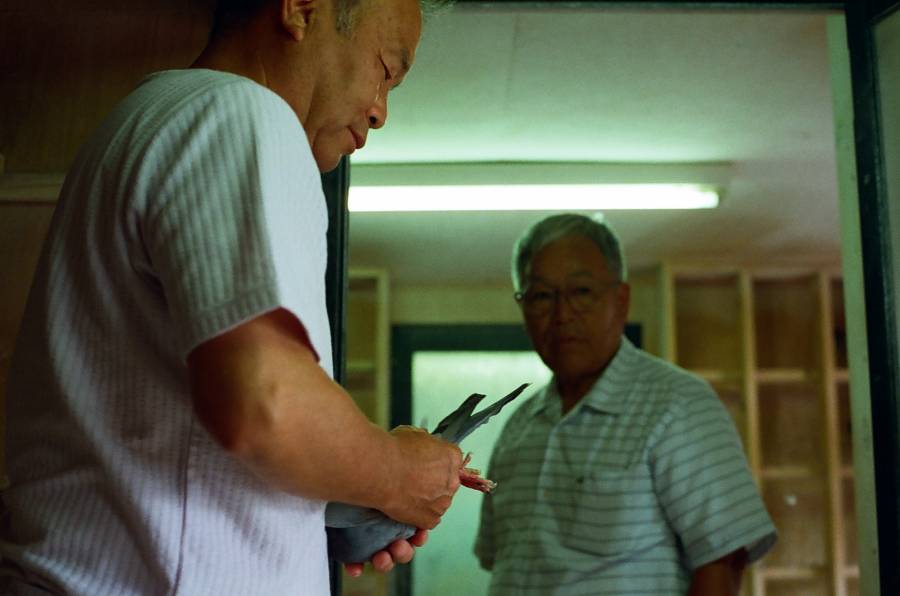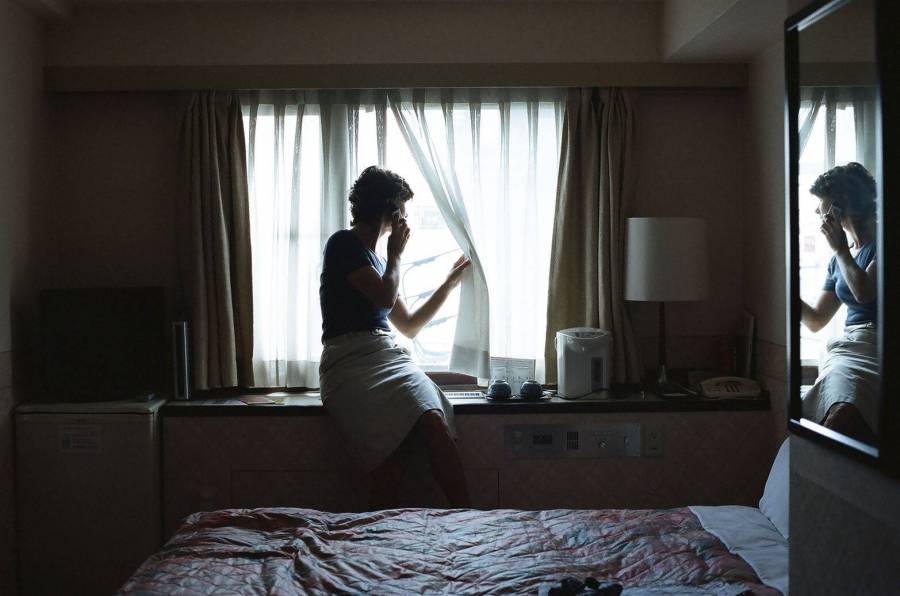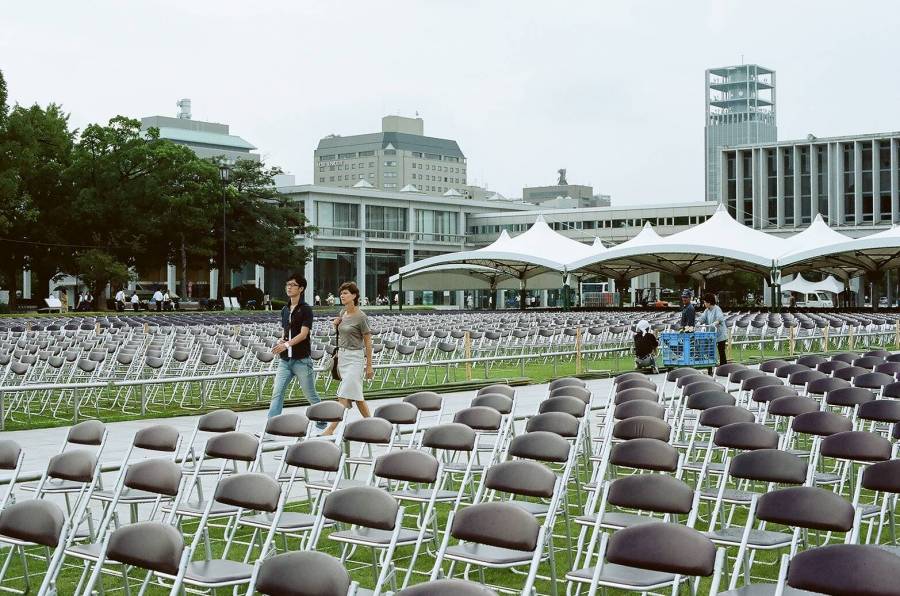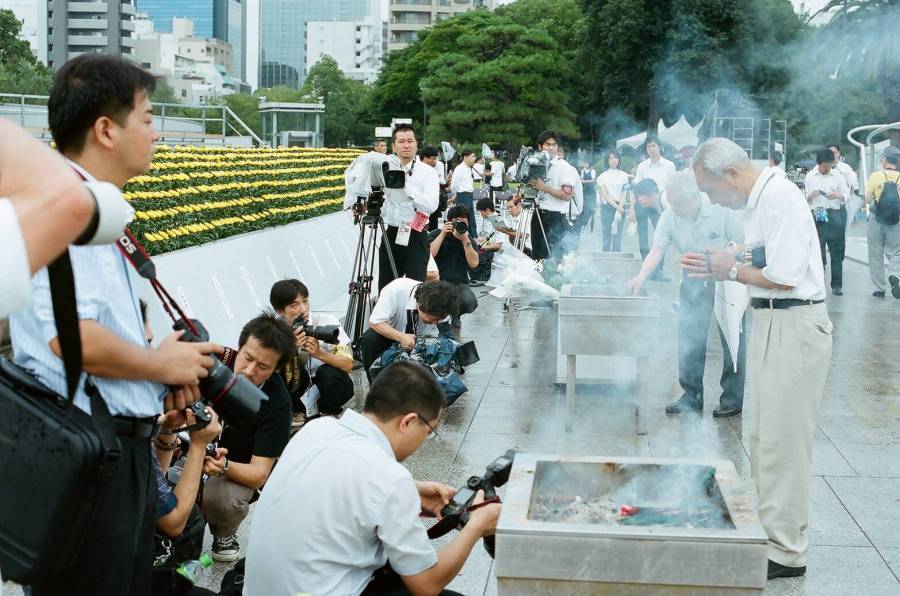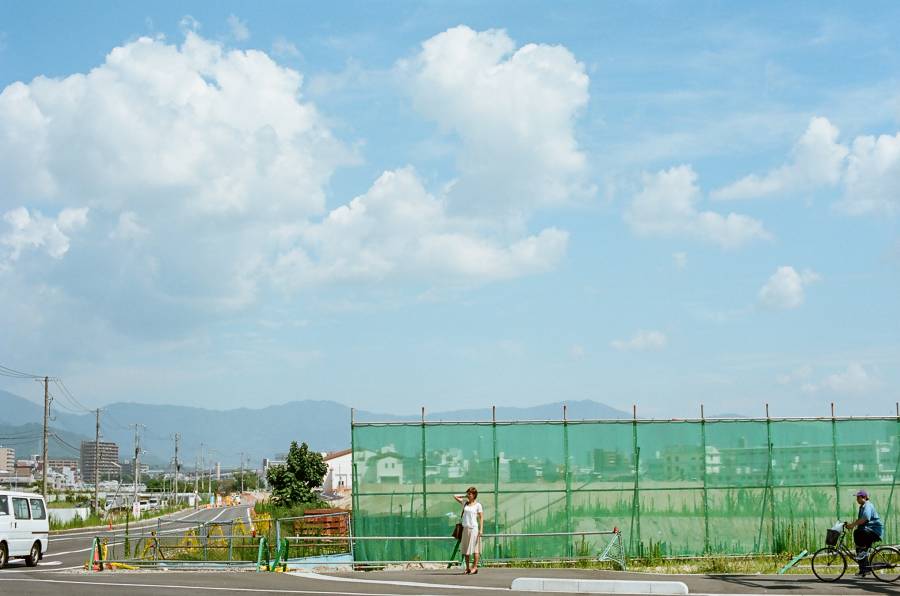August
83min., HD, Germany / Japan 2011
Original version Japanese, german, english Subtitles English Music Berthold Kröker Photography Yoshihito Takahashi Sound Gerhard Auer, Magnus Pflüger Editing Mieko Azuma Cast Sylvana Krappatsch and Hirota Otsuka Production If… Productions Distribution if… Cinema
World Premiere FID Marseille 2011
Festivals Fid Marseille, Viennale, Duisburger Filmwoche, Dok.fest Munich, Asian Hot Shots Berlin, Pravo Ljudski Sarajevo
Television ZDF 08.08.2011, ZDFKultur 14.8.2011, 3Sat 9.11.2011
Awards Special mention to the Georges de Beauregard International prize, FID Marseille
Interweaving two realities
The character of a German woman writer, about whom we know precious little, apart from the fact that her mother is losing her memory, goes to Hiroshima during the commemoration of the bombing. Guided by a young Japanese translator, she meets witnesses and residents, but just like Resnais or Suwa, she fails to gauge anything other than the distance separating her from the place she finds herself in and from the motive for going there in the first place. We see here that Meiko Azuma’s ambition for her first film is considerable, as she confronts this story and similar ones made before hers. Yet if, from the evidence before us, we can see that this young film-maker rises to her challenge to a remarkable degree, it is because she succeeds in interweaving two realities in a precise and delicate manner. On the one hand, beyond any translation, there is the bitter acknowledgement of an impossible division: shot and counter shot follow on from each other, irreversible and without any continuity. One language cannot translate into another, particularly when imbued with past experiences and pain. On the other hand, the film soberly describes life in Hiroshima today, which goes on amidst an unostentatious mourning, subdued and almost invisible. We sometimes abandon the writer so as to follow a taxi driver and his son or the journey of a bus driver after his working day. Sliding from documentary to acted scenes in a disturbing, tenuous way, Azuma invents her own cinematographic language which evokes both the difficulty of transmission and the need to use obstacles in order to reinforce the path of memory. Jean-Pierre Rehm, FID Marseille
